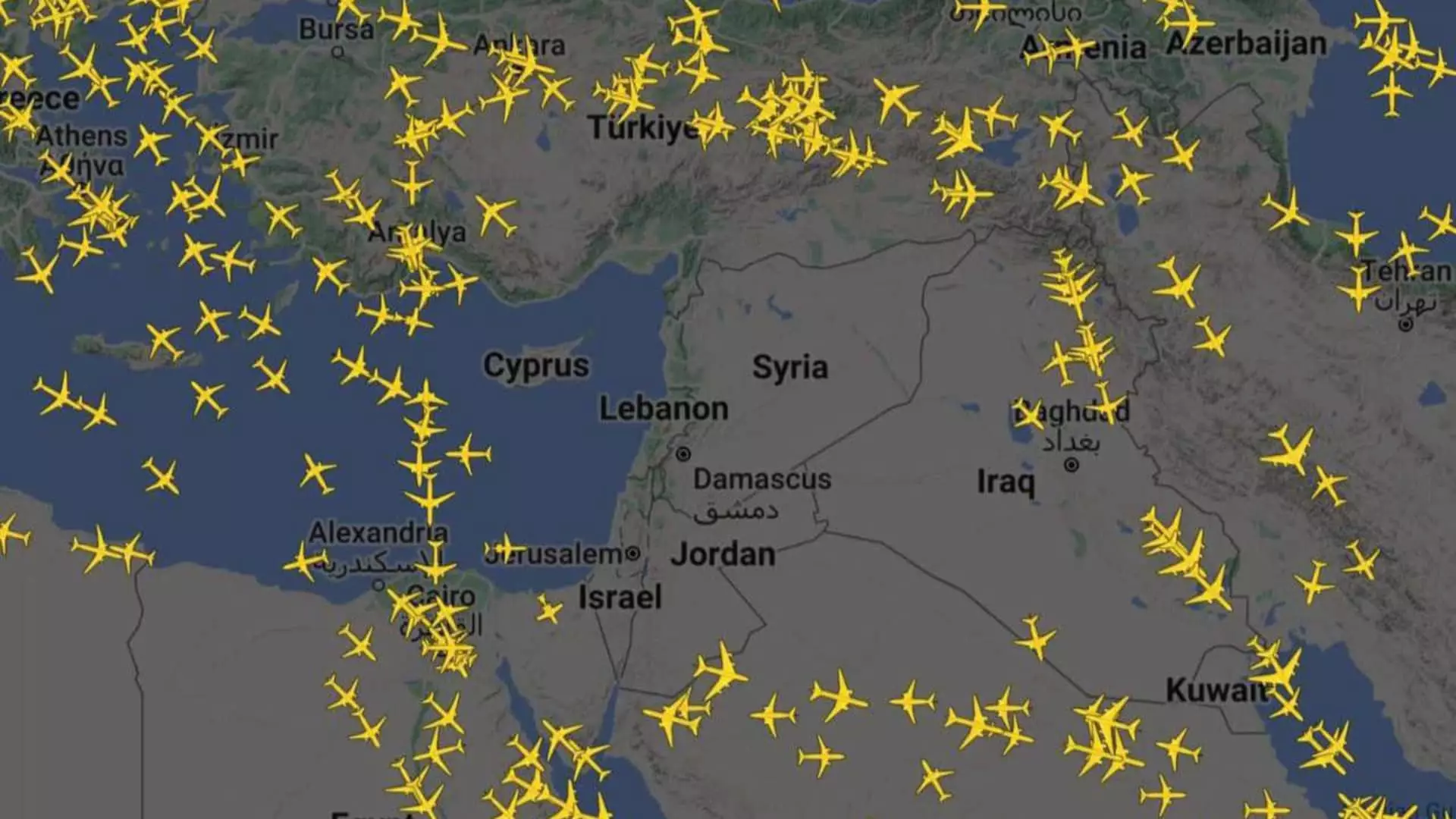The recent closures of airspace through the Middle East have had a significant impact on airlines operating flights to Israel. United Airlines, which had previously resumed service to Tel Aviv after a suspension in October due to Hamas attacks, was forced to cancel its Newark to Tel Aviv flight on Saturday as a result of Israel’s airspace closure. This decision was made in light of the escalating situation in the region, with Jordan and Iraq also closing their airspace.
Delta Airlines, scheduled to restart flights to Tel Aviv on June 7, was also affected by the airspace closures. American Airlines, on the other hand, has not resumed its Israel service as of yet, likely due to the ongoing uncertainties in the region. These cancellations and suspensions highlight the challenges that airlines face when operating in politically volatile areas.
Flight-tracking site Flightradar24 reported multiple diversions of flights bound for Tel Aviv and Amman on Saturday, indicating the widespread impact of the airspace closures. Airlines were forced to cancel services scheduled for Sunday, with Israel’s El Al canceling over 20 flights and diverting two flights bound for Israel to Bangkok. Emirates Airline, Air France, British Airways, and Lufthansa were among the other carriers that had to cancel or divert flights due to the airspace closures.
The uncertainties surrounding the situation in the Middle East have made it challenging for airlines to resume normal operations to Israel. The safety of passengers and crews is the primary concern for airlines like United, which stated that it would closely monitor the situation before making decisions on upcoming flights. Passengers have also been advised to stay updated on flight notifications and avoid coming to the airport until further notice, emphasizing the importance of communication during times of crisis.
The recent airspace closures in the Middle East have had a significant impact on flights to Israel, leading to cancellations, diversions, and disruptions for airlines and passengers alike. The ongoing unrest in the region underscores the complexities of operating flights in politically sensitive areas, highlighting the need for airlines to prioritize safety and security above all else. As the situation continues to evolve, airlines will need to remain vigilant and adaptable in order to navigate the challenges posed by geopolitical tensions.

Leave a Reply